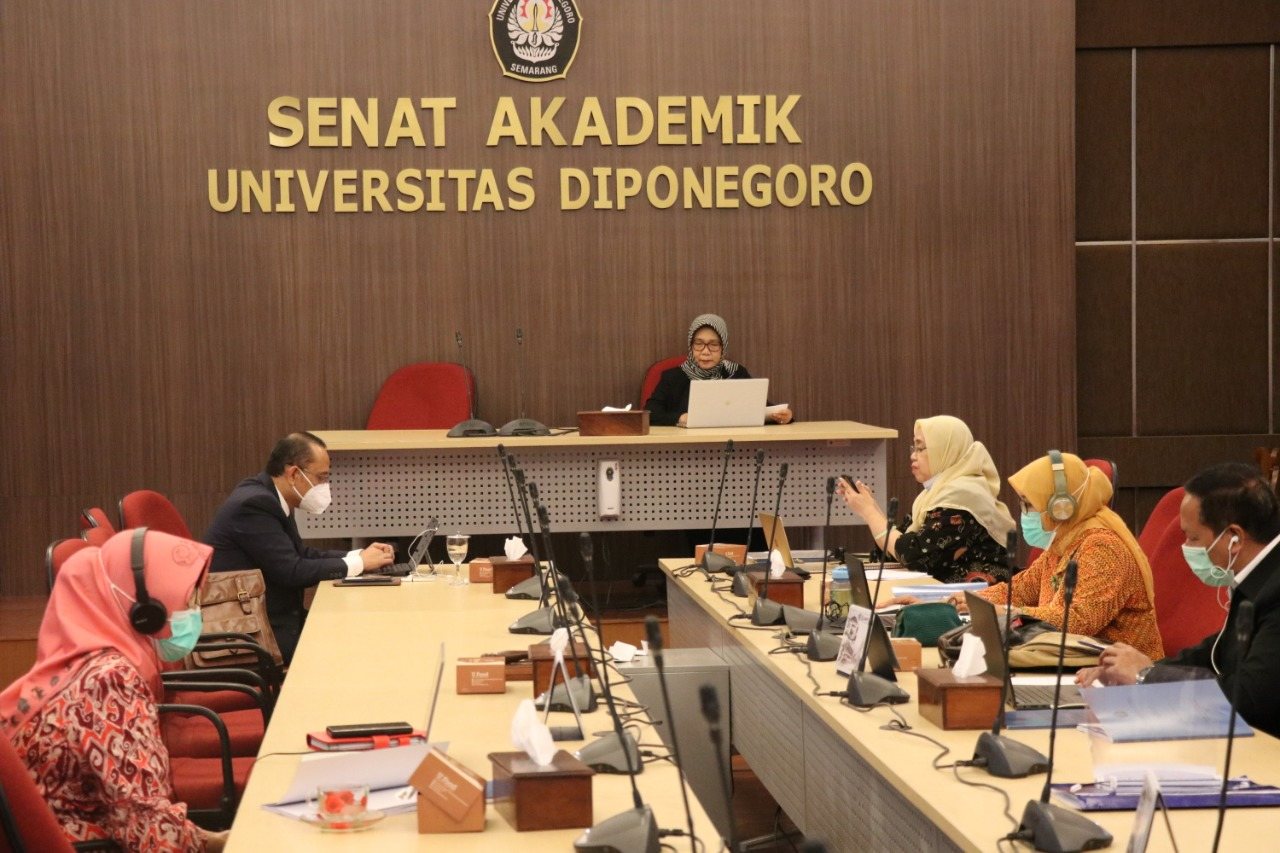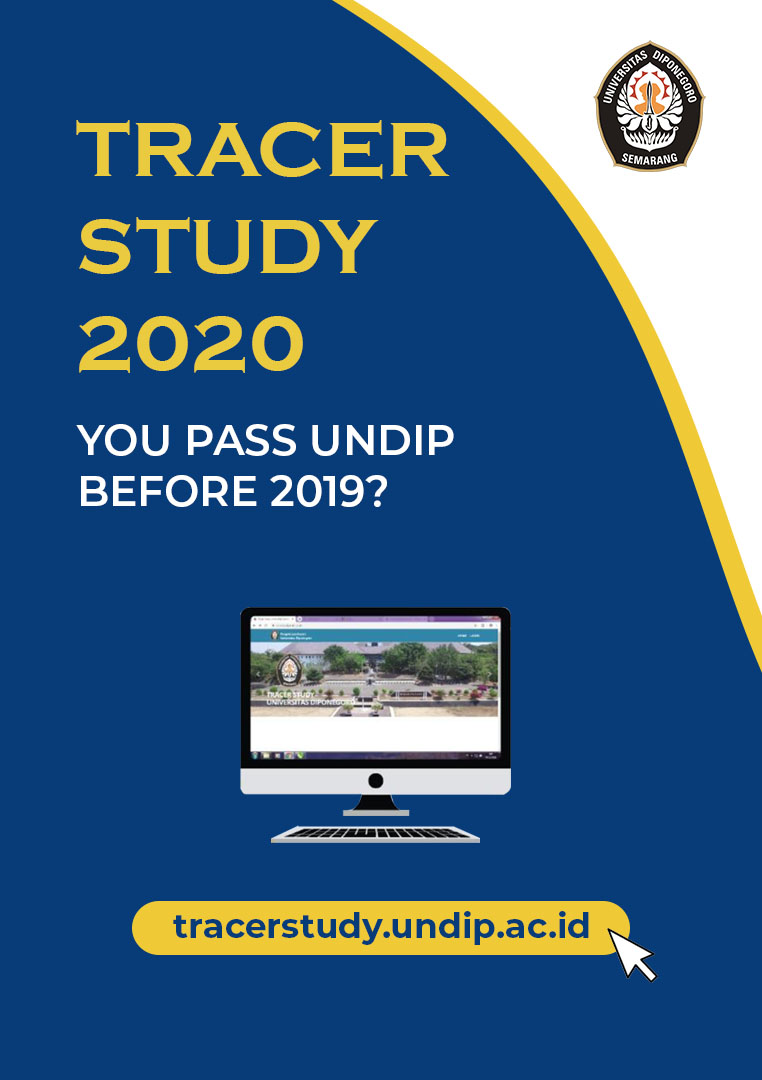FPIK, SEMARANG – Diponegoro University again held a presentation of prospective professors at the UNDIP Academic Senate Meeting Room which was attended by the Chair, Deputy, and Secretary of the Academic Senate, as well as the Board of Professors. The Plenary Meeting of the Senate Academic Professors Council is held online and offline.
The first presentation by Dr. sc. Agr. Iwan Rudiarto, S.T., M.Sc., lecturer at the Faculty of Engineering (FT) UNDIP who explained the results of his research entitled “Planning and Development of Inclusive Villages: Multi-Dimensional Approaches to Sustainable Village Planning & Development”. The conditions and socio-economic development of rural communities are closely related to the availability of resources, however, the high movement of villagers towards the city causes changes in the social and economic structure of rural communities. Other factors such as financial, social, and physical factors called livelihood assets greatly affect the availability of rural land resources. There is a need for rural socioeconomic and resource modeling as well as modeling of future development strategies. By identifying socioeconomic characteristics spatially, it can be seen that there are significant differences between developed and less developed regions, comparability of rural areas, and differences in typology. Environmental issues such as land degradation also affect the resilience and economic conditions of rural communities. Through his research, the lecturer who is also a member of the National Planning Association (IAP) focuses on developing rural and rural areas in the city of Semarang, by identifying rural resilience, vulnerability and disaster mitigation in coastal areas, and village spatial planning from the aspect of utilization land resources.

The second presentation was delivered by Dr. Ir. Fronthea Swastawati, M.Sc. who is a lecturer at the Faculty of Fisheries and Marine Science (FPIK) UNDIP. Based on the fact that the level of fish consumption in Indonesia continues to increase, he raised the theme “Liquid Smoke Technology Innovation for the Processing of Fishery Products Towards the Industrial Revolution 4.0 in Indonesia”. One of the main products produced by fish processing in Central Java is smoked fish, which can now be processed using liquid smoke technology. Liquid smoke has many advantages compared to conventional smoking methods, including fish that can cook evenly more quickly, does not burn, avoids the effects of carcinogens, is environmentally friendly, and acts as a flavoring agent as well as a smoke flavor. The use of liquid smoke technology is not only for smoked fish, but can also be used in the processing of fresh fish, meatballs, nuggets, and other food ingredients. The development of this liquid smoke engine innovation is supported by the Department of Marine Affairs and Fisheries of Central Java Province.
The results of this research from FT and FPIK UNDIP lecturers aim to solve problems that exist in society, especially in Semarang and Central Java Province. With this research, it is hoped that UNDIP can focus on researching the area of Central Java Province and the northern coast of Java Island with the theme of urbanization and rural-urban transformation. In the fisheries sector, UNDIP liquid smoke technology contributes to the exploration of potential marine resources, increases the effectiveness and production of processed fishery products, and expands market access with more modern management. (Source: www.undip.ac.id).


